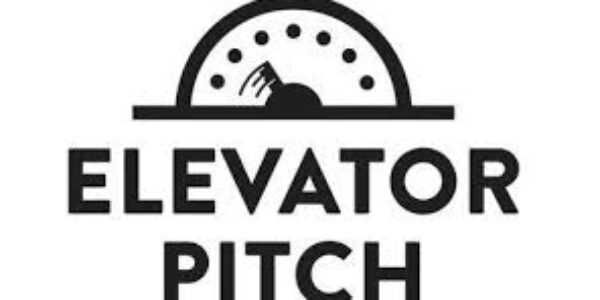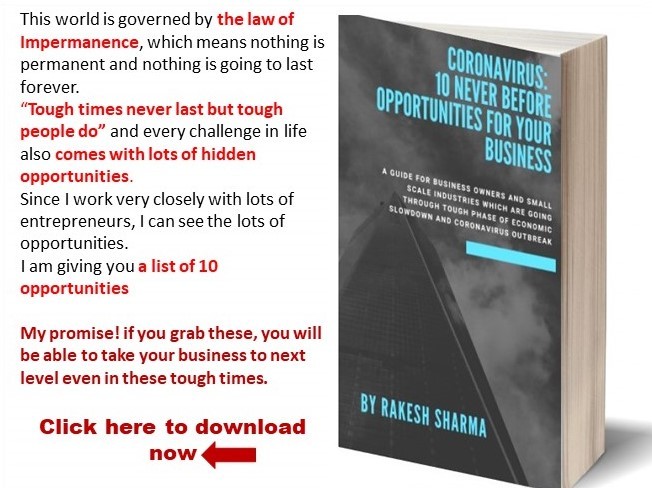Meetings are a common way of professional life these days. The average manager spends 35{2facf265810d5c64deca339a00197305ceb917dadef902f2426694cb75f36e2b} to 55{2facf265810d5c64deca339a00197305ceb917dadef902f2426694cb75f36e2b} of his or her time on meeting. Even the top brass cannot escape.
But if I tell you meetings are not an effective way of getting things done!
Recent survey showed that senior managers spend almost half of his time in meetings only. And more than one third of meeting time is wasted.
The few reasons why the meeting time is wasted are listed below.
- People do not know what the meeting is for
- No one is clear about what is to be accomplished
- There is no agenda or timetable
- Meeting runs too long
- They are too boring
- People’s minds wander and they are generally defocused
- There are too many items to be covered
- No one wants to discuss the real problem
- Some participants are not interested and don’t want to be there
- They this distractions and instructions
- People are un-cooperative.
- The boss has already decided on a course of action, the meeting is just a rubber stamp
- People attack each other’s sides
- Meetings are used when other methods could work better
Peter Drucker tells us, “There are a number of common symptoms of poor organization… First the symptom of too many meetings, attended by too many people…the human dynamics of meetings are so complex as to make them very poor tool for getting any work done”.
Does this mean that all is hopeless, and nothing can be done?
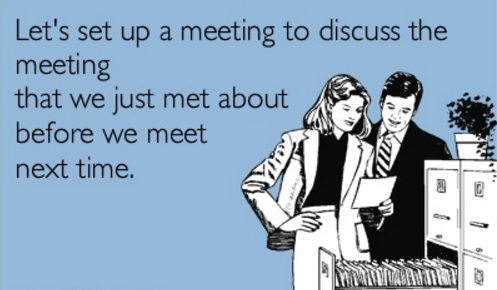
Actually, there are things which can be implemented to make the meetings useful and effective.
Meetings can be important personal opportunities for you. They are a ready-made vehicle for your personal shop where you can show your knowledge judgement and leadership skills. Meetings can in-fact help you move ahead of the pack!
There are four keys to conducting effective meetings-
1. Planning: The planning of meeting is not some academic activity rather a very practical approach to conduct the meeting effectively and get some result out of it. The organizer must consider what the meeting is for? Who should be the participant in the meeting and how should the meeting be run? You should have a noticeably clear idea of the purpose of the meeting and what outcome you are expected by the end of the meeting. How will the meeting be conducted? What is the best format of conducting the meeting for example presentation, discussion, problem solving or any other? If you are not able to plan these things it is better to scrap the meeting.
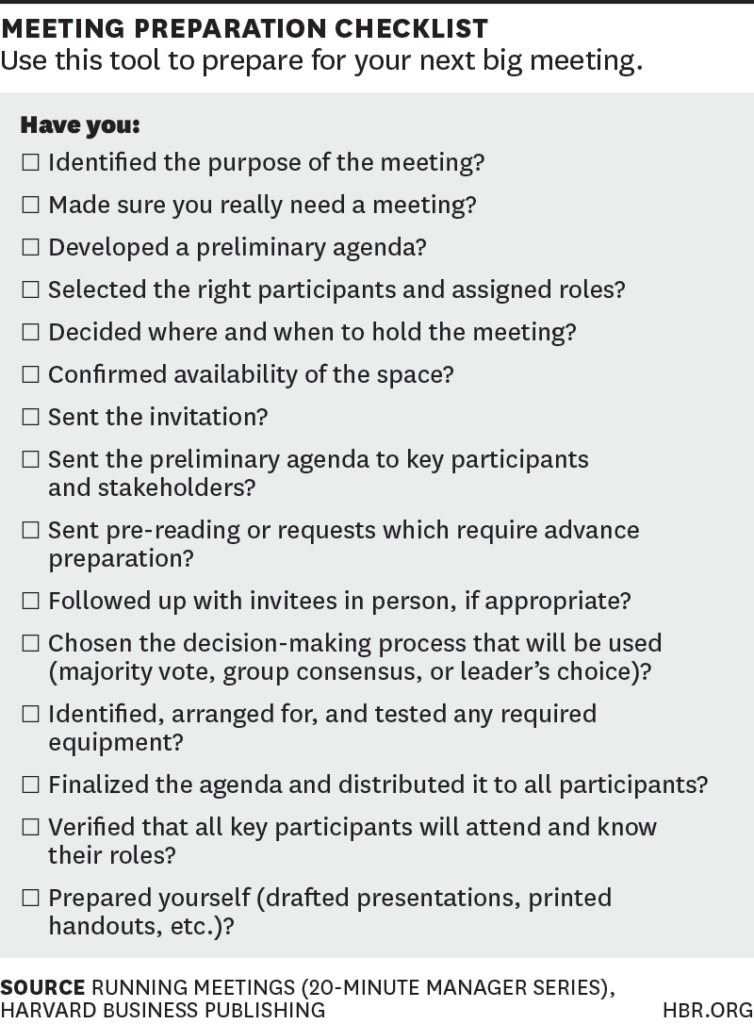
- Informing: one big problem which leads to poor meeting output is that participants do not know what the meeting is about. In the absence of this information they will not be able to prepare for the meeting ahead of time. Therefore, it is important that you send the agenda for the meeting in advance. Involve the key people in preparing the agenda of a meeting. If you do so these people will have higher on the ownership of the meeting outcome and they will help in running the meeting effectively. In case there is a need of sending some reading, material ensure to do so. Depending upon the agenda of the meeting you may decide whether all the participants to be there in the meeting for the full meeting time or they can come and attend the meeting only during the time when the agenda of their interest is being discussed.
2. Conducting the meeting: when you call a meeting and take up others time you to create heavy responsibility towards them and to yourself therefore following points must be taken care when conducting the meeting.
- Try to get most done in the least possible time- be focused and avoid distractions
- Start on time and do not wait for the late commerce. If you wait for the late comers, then you are penalizing the people who came on time.
- Restate the meeting agenda and objective and expected outcome.
- Follow the agenda is strictly keeping 2 to the allotted time.
- At the start of each end item remind departments about the outcome and the time to be spent.
- If you are giving a presentation, then be. truly clear in your communication and get people’s attention.
- Decide the course of action and clear action items with the the responsibilities and timelines
Follow up: the fourth most important key for conducting the meeting is to follow up on the actions decided during the meeting. However, generally it has been seen that after meeting people get back to their regular work and the action decide it in the meeting is left behind. The minutes of the meeting must be created and circulated within the agreed time. The meeting organizer must have responsibility to follow up and ensure that actions are completed on time.
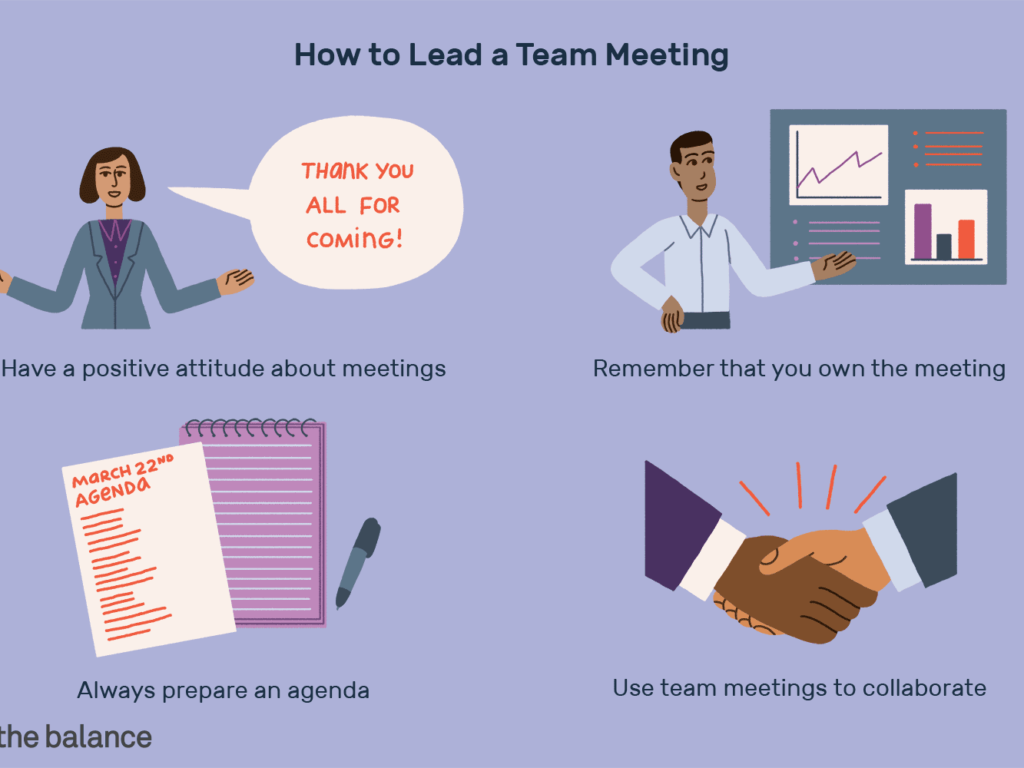
The meeting participants have the specific responsibility of preparing for the agenda and effective participation. The interaction among the participants must be good and must be done without offending and attacking the other participants.
I hope you put this knowledge to practice immediately! Write to me if you need any further assistance on applying these principles.
Until next time……..Happy selling!


